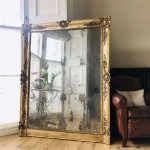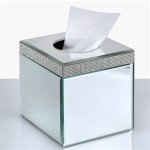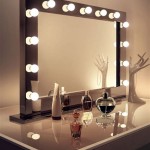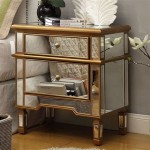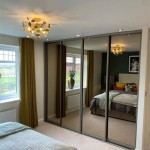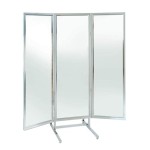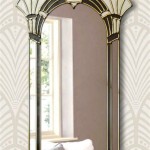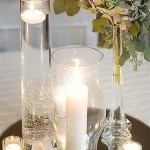Mirror Glass Sheets: Properties, Applications, and Considerations
Mirror glass sheets, ubiquitous in modern construction, interior design, and various technological applications, represent more than just reflective surfaces. They are sophisticated materials engineered with specific properties that cater to diverse needs. Understanding the composition, manufacturing processes, and potential applications of mirror glass sheets is critical for architects, designers, and consumers alike.
A standard mirror glass sheet is composed of two primary components: a sheet of glass substrate and a reflective metallic coating. The glass substrate typically consists of float glass, a type of glass manufactured by floating molten glass on a bed of molten tin. This process results in a highly flat and uniform surface, essential for creating distortion-free reflections. The reflective coating is usually a thin layer of silver or aluminum applied to one side of the glass. This metallic layer is then protected by one or more layers of paint or lacquer, preventing oxidation and mechanical damage.
The quality of a mirror glass sheet is determined by several factors, including the flatness of the glass substrate, the reflectivity of the metallic coating, and the durability of the protective layers. Higher quality mirrors exhibit minimal distortion, high reflectivity, and resistance to environmental degradation. Variations in manufacturing techniques and materials result in a wide range of mirror glass sheets suitable for different applications, from decorative mirrors to high-precision optical components.
Understanding the Manufacturing Process
The production of mirror glass sheets involves a multi-stage process, starting with the production of float glass. The float glass process begins by melting raw materials such as silica sand, soda ash, and limestone in a furnace at high temperatures. The molten glass is then poured onto a bath of molten tin, where it spreads out to a uniform thickness. The controlled cooling process ensures the glass solidifies with a perfectly flat surface.
Once the float glass is produced, it undergoes cleaning and surface preparation before the application of the reflective coating. The cleaning process removes any impurities or contaminants that could interfere with the adhesion of the metallic layer. Various methods, including chemical etching and ultrasonic cleaning, are employed to ensure a pristine surface.
The application of the reflective coating is typically achieved through a process called silvering. This involves spraying a thin layer of silver onto the glass surface using chemical solutions. The silver layer is then further coated with copper, which acts as a protective barrier and enhances the reflectivity. In some cases, aluminum is used as an alternative reflective material, especially in applications where cost is a primary concern.
Finally, the reflective coating is protected by one or more layers of paint or lacquer. These protective layers prevent oxidation of the metallic coating and provide resistance to scratches and other forms of mechanical damage. The paint or lacquer is applied using spraying or roller coating techniques and then cured in ovens to ensure a durable and long-lasting finish.
Diverse Applications of Mirror Glass Sheets
Mirror glass sheets find applications across a wide spectrum of industries, from everyday consumer products to sophisticated technological devices. In residential and commercial buildings, mirrors are used for decorative purposes, enhancing natural light, and creating a sense of spaciousness. Large mirror walls are commonly found in gyms, dance studios, and showrooms, providing visual feedback and amplifying the perceived size of the space.
In the automotive industry, mirror glass sheets are used for rearview mirrors, providing drivers with crucial visibility of their surroundings. These mirrors are often coated with specialized materials to reduce glare and enhance visibility in different lighting conditions. The quality and accuracy of automotive mirrors are critical for ensuring driver safety.
The optical industry relies heavily on mirror glass sheets for the production of lenses, telescopes, and other optical instruments. High-precision mirrors are essential for focusing and directing light with minimal distortion. These mirrors are often coated with multiple layers of reflective materials to achieve specific reflectivity characteristics.
Furthermore, mirror glass sheets are used in solar energy applications, where they are employed to concentrate sunlight onto solar panels. This concentration of sunlight increases the efficiency of solar power generation. Specialized mirror coatings are used to maximize the reflection of sunlight across the entire solar spectrum.
In the field of art and design, mirror glass sheets are used to create sculptures, installations, and decorative objects. The reflective properties of mirrors can be manipulated to create illusions, distortions, and interactive experiences. Artists often incorporate mirrors into their work to explore themes of perception, identity, and reality.
Key Considerations When Selecting Mirror Glass Sheets
Selecting the appropriate mirror glass sheet for a specific application requires careful consideration of several factors. The thickness of the glass is a primary concern, as it affects the strength and stability of the mirror. Thicker glass is generally more resistant to breakage and distortion, but it also adds weight and cost. For large mirrors, thicker glass is essential to prevent warping or sagging.
The type of reflective coating is another important consideration. Silver coatings offer higher reflectivity and durability compared to aluminum coatings, but they are also more expensive. Aluminum coatings are often used in applications where cost is a primary concern and high reflectivity is not critical.
The quality of the protective layers is crucial for ensuring the long-term performance of the mirror. The protective layers should be resistant to moisture, chemicals, and abrasion. Poorly protected mirrors can suffer from oxidation and delamination, resulting in discoloration and reduced reflectivity.
The edge treatment of the mirror is also important, especially in applications where the edges are exposed. Polished edges provide a clean and finished look, while beveled edges can add a decorative touch. Sealing the edges of the mirror can prevent moisture from penetrating the protective layers and causing damage.
Consideration should also be given to the environmental impact of the mirror. Some mirror manufacturing processes involve the use of hazardous chemicals and energy-intensive heating processes. Choosing mirrors made from recycled glass or manufactured using environmentally friendly processes can help reduce the environmental footprint.
The specific requirements of the application will ultimately determine the optimal type of mirror glass sheet to use. Consulting with a glass specialist or manufacturer can help ensure that the chosen mirror meets the necessary performance criteria and durability standards.
Beyond the characteristics of the material itself, installation plays a critical role in the longevity and appearance of mirror glass sheets. Improper installation can lead to stress fractures, distortion, and premature failure. Ensuring proper support and adequate ventilation behind the mirror is essential, particularly in humid environments.

White Blue Diamond Mirror Glass Sheet Size 600mm To 900mm

Acrylic Ps Mirror Sheets Manufacturer Supplier In

1 5mm 8mm 2mm Clear Silver Aluminum Mirror Glass Sheet Grade China And

Mirror Acrylic Sheet

Choosing Between Acrylic Mirror Sheets Vs Glass Mirrors

Naz Glass Works Transpa Mirror Sheet Size 8x4 Feet

Whole 4mm 5mm 6mm Silver Mirror Glass Sheet For Gym Dancing Studio Buy Aluminum Bathroom On Heshan Rato Special Co Ltd

3mm Plaskolite Blue 2069 Mirror Acrylic Sheet Perspex Plastic Signmaterialsdirect Com

Circuitt 4mm Sheet Mirror Glass 4 Holes 183 X 122 Cm

Clear Mirror Acrylic Plexiglass Sheet Delvie S Plastics Inc

